Saudi Water Use ‘Growing Exponentially,’ Higher Prices Needed, Report Says
Agriculture is draining non-renewable groundwater reserves in the water-scarce country.
Saudi Arabia should end government water subsidies to lower demand and save its dwindling water supplies, the National Commercial Bank (NCB) said in a report released on Oct. 4.
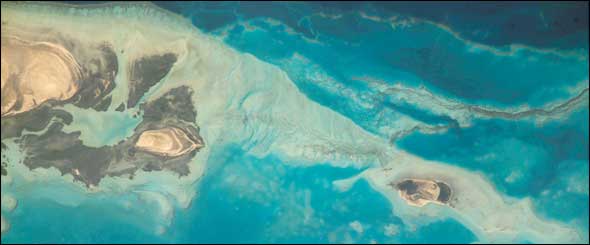
The study identifies low rainfall, population rise and the government subsidies on water consumption, which make demand “artificially high,” as the main factors behind Saudi Arabia’s growing water scarcity. It also highlights the low financial returns on the country’s water-intensive agricultural sector.
“In our opinion, imposing more regulation on agricultural activities, coupled with removing the subsidies on water are possible solutions to save the strategic water resources,” NCB said, according to Emirates 24/7, a Dubai-based news agency that received a copy of the report.
The study adds momentum to an unfolding discussion in the country about the need for water price reforms, according to the daily newspaper Arab News.
Saudi Arabia is one of the world’s driest countries. It has no perennial rivers or lakes, and its renewable water resources total 95 cubic meters per capita – well below the 1,000-cubic-meter-per-capita benchmark commonly used to denote water scarcity.
But water is virtually free in the country. Consumers pay only 1 percent of the cost of water: a little less than $0.03 per cubic meter, according to Global Water Intelligence, which estimates the true cost of operating the country’s desalination plants and pumping the water to end users to be $6 per cubic meter.
To meet residential demand, Saudi Arabia desalinates water along its coasts and delivers it to cities near and far. Riyadh, the capital, is located in the center of the Arabian peninsula and gets most of its drinking water from a 289-mile pipeline.
The country operates 29 desalination plants, giving it the largest installed capacity in the world. As a result, energy demands in the water sector are significant. By some estimates, half of the domestic oil consumption is used for desalinating water.
To prepare for the future, the Saudi government announced a national initiative in January 2010 in cooperation with King Abdulaziz City for Science and Technology to use solar power in desalination plants. Though the program will start small with a 30,000 per-cubic-meter-capacity plant, eventually all facilities will incorporate solar energy.
But residential use is a small share of Saudi Arabia’s water budget. Roughly 88 percent of water use goes toward agriculture, which contributes less than 3 percent of the country’s gross domestic product, according to the Saudi Arabian Monetary Agency. Much of the water comes from fossil aquifers that cannot be replenished.
This lack of renewable groundwater is the country’s greatest concern, David Evans, a board member of the Saudi Arabia Water Environment Association, wrote in an email to Circle of Blue. Two-thirds of the water used in the country comes from groundwater, according to the United Nations Economic and Social Commission for Western Asia.
In response to the unavoidable shortage, the Saudi government decided two years ago to phase out domestic wheat production by 2016. This, in turn, has spurred government investment in farmland abroad.
Meanwhile, the domestic population has been growing at 2.5 percent recently, which will increase the number of people living in the country by 50 percent in the 20 years to 2020, according to the Ministry of Economy and Planning.
To secure water supplies, the government has ambitious plans to invest $186 billion in the same time period in water, wastewater and electricity projects. Last month, it awarded a $1.5 billion contract to South Korean firm Doosan for the Ras al Zour water and power project, slated to be the world’s largest desalination plant when completed. However, even breakneck building will not be able to keep up with demand if price reforms are not implemented in tandem.
Source: Emirates 24/7, Arab News, Global Water Intelligence, Saudi Arabian Monetary Agency.
Brett writes about agriculture, energy, infrastructure, and the politics and economics of water in the United States. He also writes the Federal Water Tap, Circle of Blue’s weekly digest of U.S. government water news. He is the winner of two Society of Environmental Journalists reporting awards, one of the top honors in American environmental journalism: first place for explanatory reporting for a series on septic system pollution in the United States(2016) and third place for beat reporting in a small market (2014). He received the Sierra Club’s Distinguished Service Award in 2018. Brett lives in Seattle, where he hikes the mountains and bakes pies. Contact Brett Walton



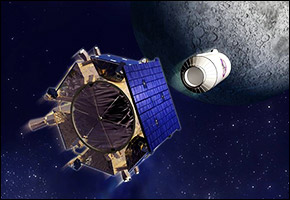
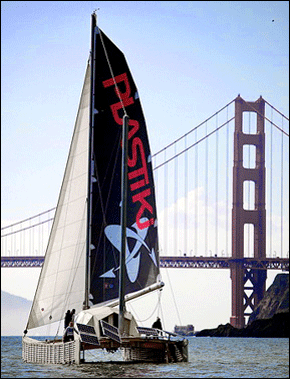

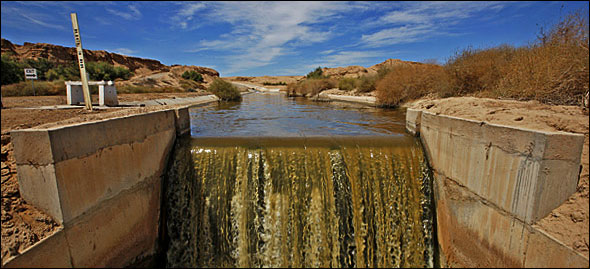


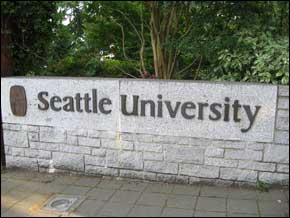
Who said “Growing Exponentially”? It’s mathematically possible but unusual.